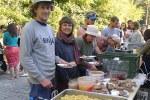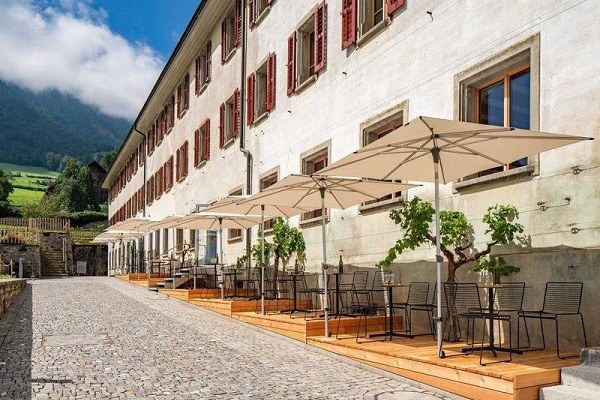News
Developing Alpine culinary arts
Sbrinzcrème with baked fennel, or Ticino Loto risotto with pumpkin: regional products from central Switzerland are on the menu in a former Capuchin monastery in the Swiss town of Stans. It also offers courses that range from traditional sausages to herbology from the entire Alpine region. In addition to culinary knowledge, do-it-yourself cooking is taught. Dominik Flammer, the creator of the “Culinarium Alpinum”, has also authored a book on the “Culinary Heritage of the Alps”. There is enormous potential for destination tourism in a credible regional culinary tradition, he says: “Only if all partners in the culinary value chain work together can we generate added value for agriculture, gastronomy and the hotel industry, as well as for the entire tourism industry. The Hotel Alpenblick in Safiental/CH, which is to become both an experimental and a living space for Alpine food culture, is taking a similar approach. An Alpine FoodLab is to be set up there in the future to research local raw materials, while a processing area will provide space and opportunities for refining, packaging and storing food for farmers from the region”.
Crisis-proof: Alpine food culture
Regional and high-quality food is not an end in itself, as the corona crisis has taught us: “Industrialised food production is not guaranteed when something big like a pandemic strikes,” says Cassiano Luminati, who headed the AlpFoodWay project from 2016 to 2019. “It also shows how resilient the Alpine region is.” In the project, 14 partner organisations from six Alpine countries documented a total of 150 culinary practices in the Alpine region on an interactive map that can be accessed online – from the farming of marble trout in Slovenia’s Soča Valley to the cultivation of chestnuts in Italy’s Valsugana. The partners have formulated a vision and a charter for preserving Alpine food culture. “We are not talking about an Alpine museum, but about the young generation that now works and lives in the Alpine region.” This is about more than the eating culture of a particular valley or its home region, Luminati added: “It's about the values we share across the Alps”. The goal following the end of the AlpFoodWay project is now international recognition by UNESCO of Alpine food culture as an intangible cultural heritage. Such a listing, says Luminati, would be a starting point for political decision-makers and for communities that need to be preserved and renewed.
Sources and further Information:
Culinarium alpinum nimmt Betrieb auf (de), Tenna plant ein Berghotel für kulinarische und künstlerische Innovationen (de), alpfoodway.eu/home/






